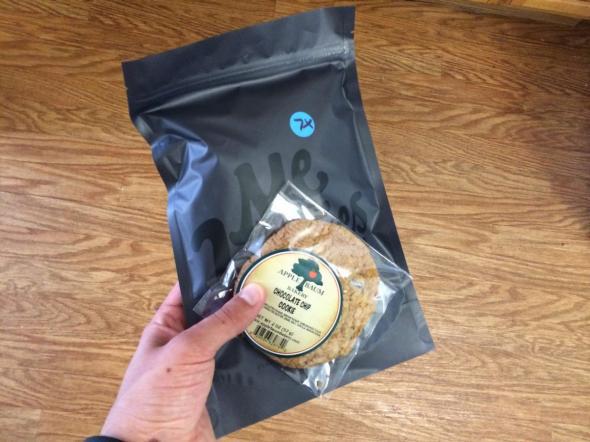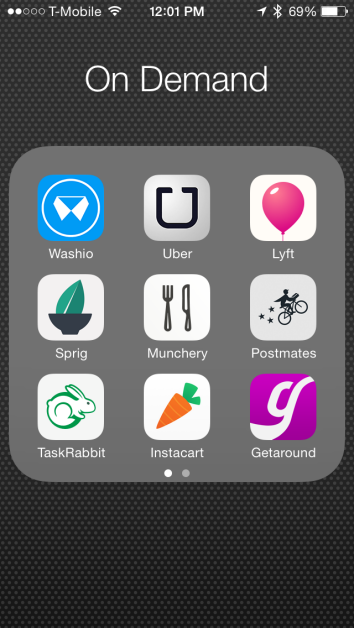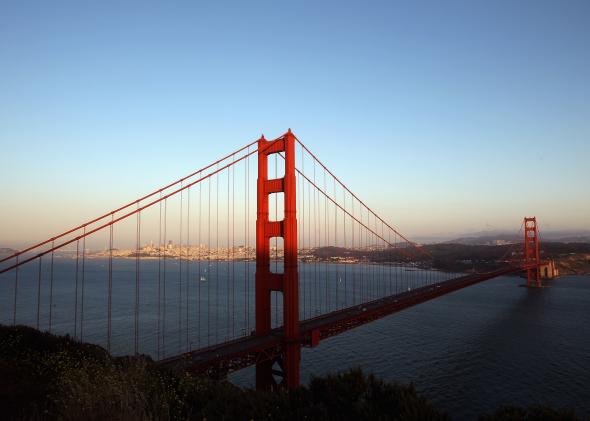This story originally appeared in Business Insider.
When I left New York for a three-month business trip to San Francisco, I exited my Upper East Side apartment at 5 a.m., held my hand out on First Avenue, and had a cab to Kennedy Airport within seconds.
It’s the kind of convenience I’ve become accustomed to after living in New York for over six years. I can get just about anything I want, whenever I want, all within a few blocks of my home. There’s a Starbucks 184 feet away from my front door. There’s a classy Italian steakhouse across the street. If I’m feeling adventurous, I can go to the other Starbucks about 1,000 feet away.
It’s not like that in San Francisco, a city where I now have to walk at least 15 minutes up a steep hill to get to my nearest grocery store. Plus, everything closes early. If I want a pint of Ben & Jerry’s at 2 a.m., I can’t just walk to my corner 24/7 bodega like I could in New York. I’m left unsatisfied and ice cream-less.
But San Francisco is also the largest incubator of tech startups in the country, a place where every entrepreneur with even the most basic coding knowledge is trying to turn some industry on its head through an app. Increasingly, that has applied to real-world tasks like cleaning, shopping, and eating. In my time here, I’ve still felt right at home by outsourcing a lot of what I do to others by using my smartphone.
New Yorkers are probably already familiar with the food-delivery service Seamless, but in San Francisco there’s a Seamless-like app for everything. Your laundry. Housekeeping. Groceries. Car rides. Even booze. And it all comes almost instantly.
Many of these services are so new that they’re being tested in just a few markets. And since a lot of them are based in San Francisco, they’re available only here. Over the last few weeks I decided to satiate my need for instant gratification using as many of these apps as possible.
Food was the obvious first step. Seamless and its sister app, GrubHub, are also in San Francisco, but many delivery places don’t work with those apps, and if they do, they charge you an absurd minimum before you can even place an order. I just can’t eat $30 worth of Chinese takeout.
A friend told me about Sprig, a startup that delivers gourmet meals to your door within about 15 minutes. Each day, there’s a limited menu of three or four dishes cooked up by the startup’s own executive chef. You tap what you want, enter your credit card information, and your food is on its way. I ordered a Thai noodle dish with pork, and it was at my door 12 minutes later, much faster—and healthier — than ordering a pizza. The delivery person handed me my order along with a free truffle for dessert and that was it. No need to exchange cash. The tip was included. And it was only $12.
I also tried Washio, a service that will pick up your dirty laundry and dry cleaning and have it back to you within 24 hours. Like Sprig, you manage Washio through a smartphone app to schedule your pickup and drop off times. Washio has an army of contractors—or, in startup parlance, “ninjas”—who swing by your place to get your dirty clothes. They also give you a free cookie with every pickup. The first time I tried Washio, my ninja gave me a bonus—a free pair of underwear as part of a cross promotion with another startup. (Yes, you can also get on-demand underwear in San Francisco.)

Steve Kovach/Business Insider
There are others. I used Handybook to hire someone to clean my apartment. I used Postmates to hire someone to pick up food for me when a certain place couldn’t deliver. And, of course, I frequently used Uber and Lyft to call a car whenever I needed to go somewhere because San Francisco’s public transportation system is notoriously awful. There are so many of these services that I had to create a special “On Demand” folder for all of them on my iPhone.
It’s worked out well so far. My laundry comes clean, ironed, and perfectly folded. The food is yummy. I never have to fumble with cash to pay a cab driver. Plus, many of these services are cheaper than or at cost with what I’d normally pay in New York. In many cases, using these services for the first time felt as transformative as using the iPhone for the first time. Everything just worked. “Why didn’t anyone think of this sooner?” I thought as I munched on my free Washio cookie.
The only negative experience I’ve had so far was with Instacart, an app that sends a personal shopper to a nearby grocery store to pick up whatever you need and deliver it to you within an hour. It works as advertised, but the prices are marked up, and customers run the risk of not being able to get what they want because the store is out of stock. Instacart’s shoppers try their best to find similar items, but in my case I couldn’t justify buying a five-pound package of bananas instead of a normal bunch. It feels less like Instacart isn’t so much a handy service but a way to hack a grocery store to make money by marking up yogurt and eggs through an app.

Business Insider
To Instacart’s credit, a representative told me the company has agreements with the stores its contractors shop at. Plus, contractors will go out of their way to get you what you want, even if that means going to a second or third store to find it.
But it does demonstrate the downside to the so-called sharing economy and on-demand services. The customer gets what she wants, but many of these startups still rely on a network of contractors who are paid only on commission and tips. TaskRabbit, an app that lets you hire a worker to do anything from mow your lawn to dress like an elf and dance in front of your coworkers, recently tweaked the way it assigns tasks to its contractors, which caused many to complain that they had essentially been put out of work.
It’s an imperfect system, and one I doubt will be able to properly scale in many industries, especially in suburbs and rural areas where it’d be tough to find contractors willing to be glorified personal assistants for strangers. Then there’s the thorn of labor issues—benefits, appropriate pay, and so on. Plus, there’s a notion here that everything, even basic stuff like fixing a leaky faucet can and should be disrupted by technology. Based on my experience so far, I don’t think that’s the case. But boy is the VC money flowing to startups trying to disrupt normal industries anyway. Those frothy times aren’t going to last forever.
Still, it works in San Francisco, and likely will in other dense urban areas. I think something like it is a taste of things to come.
See Also: Thirteen Things Siri Can Do For You
